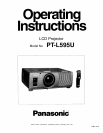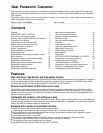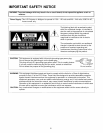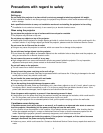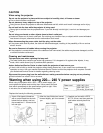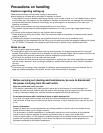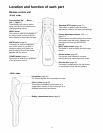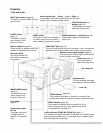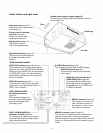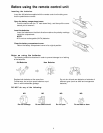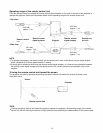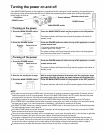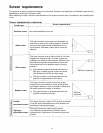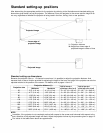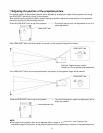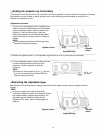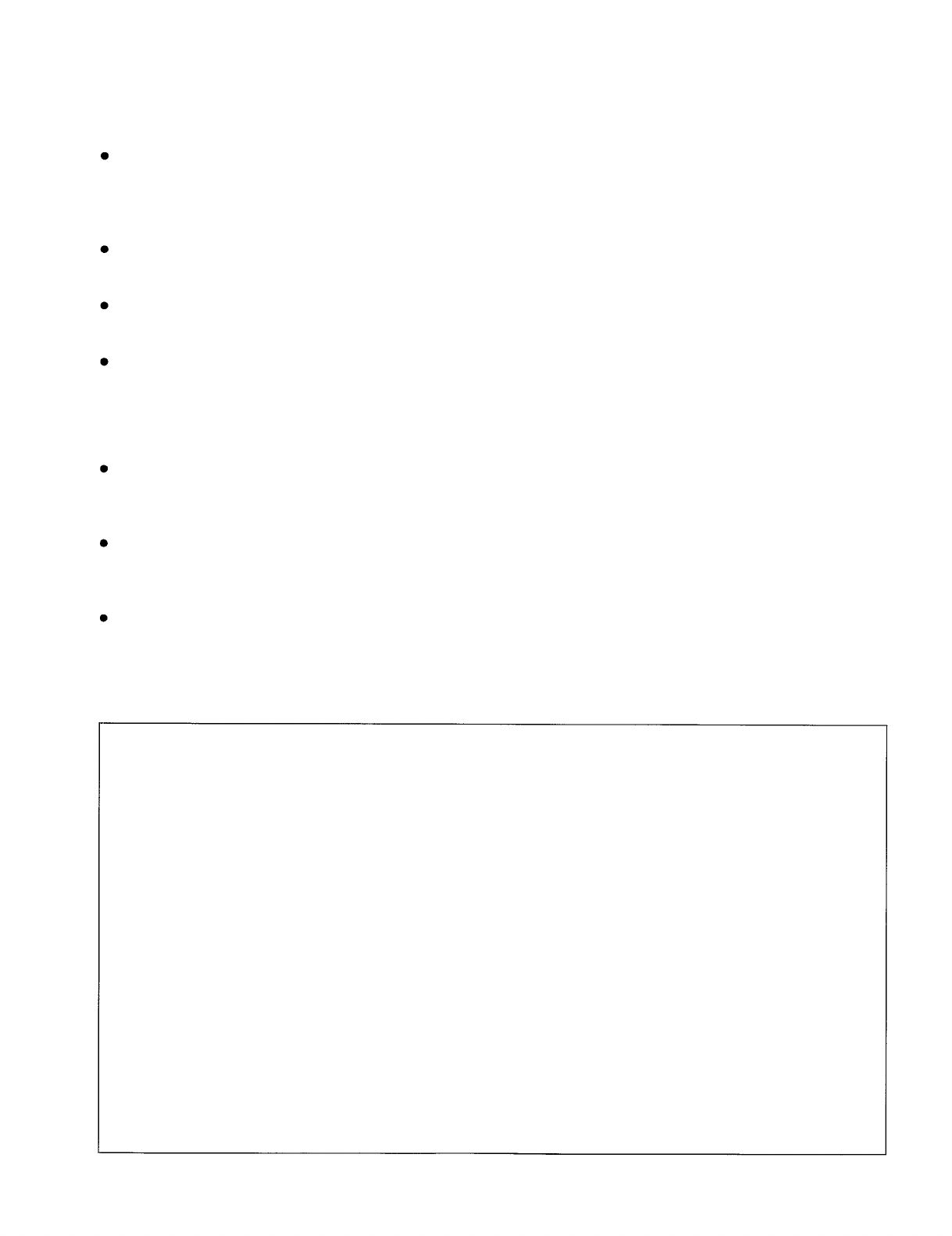
Precautions on handling
Cautions regarding setting-up
Observe the following at all times when setting up the projector.
Avoid setting up in places which are subject to vibration or shocks.
If the projector is set up in locations with strong vibration, such as near a motor, or if it is installed inside a vehicle
or on board a ship, the projector may be subjected to vibration or shocks which can damage the internal parts
and cause malfunctions or accidents. Accordingly, set up the projector in a place which is free from such
vibrations and shocks.
Do not set up the projector near high-voltage power lines or near motors.
The projector may be subject to electromagnetic interference if it is set up near high-voltage power lines or
motors.
Do not set up the projector directly on top of plastic sheet or carpet.
Plastic sheets can stick to the air filter, which can cause the inside of the projector to overheat and the power
supply to switch off.
If installing the projector to the ceiling, ask a qualified technician to carry out all installation work.
If the projector is to be suspended from the ceiling, you will need to purchase the separate installation kit (Model
No.: ET-PK592). Furthermore, all installation work should only be carried out by a qualified technician.
Notes on use
In order to get the best picture quality
If outside light or light from indoor lamps is shining onto the screen, the images projected will not have good
contrast. Draw curtains or blinds over any windows, turn off any fluorescent lights near the screen and cover any
highly-reflective floor and wall surfaces with carpet or wallpaper to prevent reflection.
Do not touch the surfaces of the lens with your bare hands.
If the surfaces of the lens becomes dirty from fingerprints or anything else, this will be magnified and projected
onto the screen. Moreover, when not using the projector, retract the lens and then cover it with the accessory
lens cap.
About the screen
If the screen you are using is dirty, damaged or discolored, attractive projections cannot be obtained. Do not
apply any volatile substances to the screen, and do not let it become dirty or damaged.
Before carrying out cleaning and maintenance, be sure to disconnect
the power cord plug from the wall outlet.
Wipe the cabinet with a soft, dry cloth.
If the cabinet is particularly dirty, soak the cloth in water with a small amount of neutral detergent in it,
squeeze the cloth very well, and then wipe the cabinet. After cleaning, wipe the cabinet dry with a dry cloth.
If using a chemically-treated cloth, read the instructions supplied with the cloth before use.
Do not wipe the lenses with a cloth that is dusty or which produces lint.
If any dust or lint gets onto the lenses, such dust or lint will be magnified and projected onto the screen.
Use the blower to clean any dust and lint from the lens surfaces, or use a chamois cloth to wipe off any dust
or lint.
About condensation
Droplets of water form on the windows which are warmed suddenly in winter, and on the outside of beer
bottles which are taken out of a fridge in summer.
This phenomenon is called condensation; if condensation should occur on the surfaces of the projection
lenses or mirror inside the projector, the picture may become fuzzy or it may not be visible at all.
If there is high humidity, or if the projector is suddenly brought from a cold environment into a warm one, the
projector will normally stop projecting. In such cases, the projector will normally resume projection as it
becomes conditioned to the ambient temperature.
5



